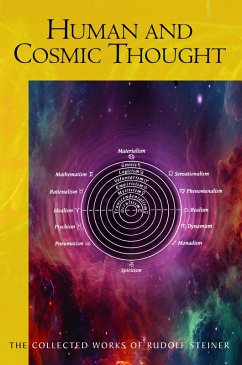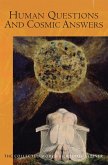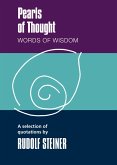What convinces us of the truth of a point of view? Why do we find it difficult to understand or accept differing perspectives? What are the inner foundations of our knowledge? In these concentrated and aphoristic lectures, Rudolf Steiner speaks of twelve main philosophical standpoints, and the importance of comprehending each one of them. Appreciating the variety of world-views not only sharpens our thinking and makes it more flexible, but helps us to overcome a narrow-minded one sidedness, promoting tolerance of other people and their opinions. The future of philosophy rests not upon defending one single perspective and refuting all others, but in learning to experience the validity of all points of view. Steiner goes on to explain how each philosophical standpoint is coloured by a particular 'soul mood', which influences the way we pursue knowledge as individuals. He characterizes the work of several thinkers in this way, throwing light on their unique contributions to human culture. Through such insights into the true nature of human thinking, we are led to understand the quality of cosmic thought, and how the human being is a 'thought which is thought by the Hierarchies of the cosmos'. This revised translation is complemented with an introduction by Robert McDermott, editorial notes and appendices by Frederick Amrine and an index. Four lectures, Berlin, Jan. 1914, GA 151
Dieser Download kann aus rechtlichen Gründen nur mit Rechnungsadresse in A, B, BG, CY, CZ, D, DK, EW, E, FIN, F, GR, H, IRL, I, LT, L, LR, M, NL, PL, P, R, S, SLO, SK ausgeliefert werden.









